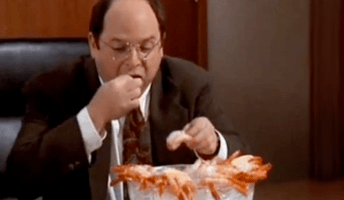It’s very easy to hit auto-pilot on your company’s existence. There are no big issues, production...
Don’t You Forget About Me
Comcast is pushing its new Streampix movie and television show catalog. There are promos aplenty with much of it being TV commercials. And its primary movie of choice to play in the background of the announcer's messaging is "The Breakfast Club." This movie debuted in early 1985. It's 2013 (barely). A movie almost 29 years old is the primary movie of appeal for current streaming consumers? Apparently.
This movie has been shown hundreds of times on TBS and the like. It's sold thousands of VHS and DVD copies. And it continues to sell. So why? For those of you familiar with my deep love for Molly Ringwald, I will leave that aside as a reason (hard for me to do). Part of the appeal is the nostalgia of the 80's. Those of us who hit their teens sometime during that decade find that this movie, perhaps more than any other, defines our generation. The characters struggle with identity and their place in the world. The peer pressure, the temptations of life, the masks needed to be worn, the inadequacy of self - all of these are themes, still relevant today.
It's brilliant, actually, that Comcast is using it. The movie is a microcosm of life beyond the teenage years. Many of us work in places where we have to mask ourselves and pretend that all is well when it very much is not. And, to be clear, this is not necessarily an indictment on the workplace or company; it may be that your continued poor view of self haunts your everyday existence and causes you to maintain appearances using all of your energy. Letting your guard down is not an option and perhaps there is no real outlet for it.
I am aware that counseling is available for the deeper issues; some companies have rather robust EAP's or even in-house professionals. However, the reality is that most of us won't use those available services or seek outside help for what we would call "it's just how I am." Going home after work and popping on "The Breakfast Club" while crying might be all the therapy needed. I have experienced workplaces where the demand is great and the care for people is not. I have also been at workplaces where the care for people is high, but the facade to be okay and participate with others is crushing. Not everyone is the "kum ba yah" type to be okay with HR's latest and greatest team building program. HR can encourage, albeit unintentionally, poor self-esteem (I can't do what these people can do), dishonesty (a lack of people being able to be genuine) or compartmentalization (I need to work a certain way and fit into a certain box).
Let's not be offended by this. Let that go. It's not about you. It's about the companies we work for and the employees we serve. So, ask yourself, what have I forgotten about people that I need to re-learn? Take some time to consider your company to jar your memory. Does peer pressure still exist at work? Is it positive in that it's about performance and cultural health? Or is it about high school groupings all over again? Who are the Cool Crowd and how do they keep the Dorks out? How do people sit in the breakroom? Look, this is just one stream of thought - there are MANY to consider. But we ought to think about the Ally Sheedy's and Anthony Michael Hall's of our companies. Where do they fit and are they fitting well? Don't forget about them.
And yet, I would also submit that the Molly Ringwald's and Emilio Estevez's don't have it all together either. And sometimes, we in HR feed those roles and allow little room for them to say, "Enough!" We build programs around the funny guys, rather than around significant content. so that we get a visceral response to affirm our own existence at work - close your mouth and don't pretend to be shocked. I have seen this done numerous times and I am sure it will continue. It's the same line of thinking around some who desire to be seen as "experts" or "thought leaders." Posting and re-tweeting "smart" stuff doesn't really make you either an expert or a leader (ouch).
I am driven to always come back to the people we serve. We have to consider all of them and how they fit together. "The Breakfast Club" works well because we see the roles each one plays, the walls come down and true relationship emerges, but here's the reality - they went back to school on Monday and assuredly re-acclimated to their role. They may hate it, but they do it. Adults do it, too.
Fitting in and finding your place means something to every person (don't even pretend it doesn't - even non-conformists hang out with other non-conformists). Individual identity is precious and should be encouraged to be explored. If you read biographies about some of the great business leaders, you'll see struggles dealt with in these areas for each and the way in which they were fostered through it. We can consider this as we develop our programs and benefits, yes, but more so in our messaging and our recognition language.
How do all of the pieces fit? That's our job to study. We are to create environments that will allow every person to be free to be the skillful, collaborative person we've hired. That's what our companies pay for and that's what we need them to be. And each person has a role. Don't forget about any one of them.



Blog comments